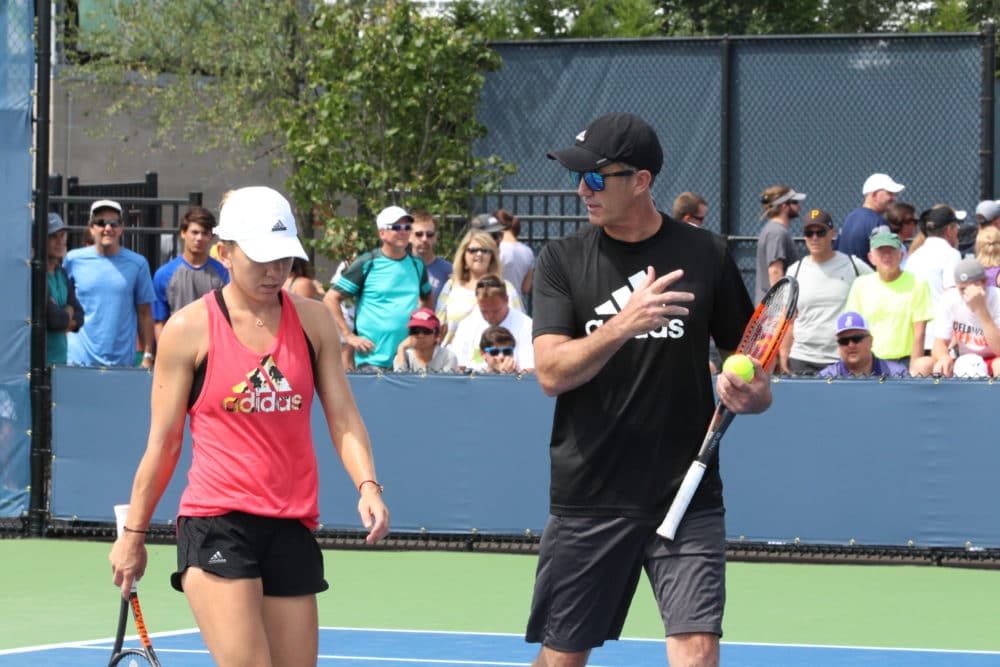Burnout. It is a concept that we often hear applied to athletes who have been pushed passed the point of exhaustion, leading them to hate the sport that they once fell in love with. However, we often neglect the fact that coaches can also experience the extreme state of physical, emotional, and mental exhaustion that is burnout.
When you are feeling burned out, you may find difficulty in handling your workload, which can lead you to question the value of your work. In some cases, you may even begin to experience doubt in your career choices, which can impact you personally, professionally, intellectually, physically, and financially.
Founder and Executive Director of Blue Chip Sports Management Tim Bainton and family practitioner Dr. Charlotte Alabaster have teamed up to address this issue head-on at the second annual WTCA Conference in New York City. Together, they will help coaches address their own personal feelings of burnout, while also educating them on life beyond the tennis court.
First and foremost, it is important to understand the difference between typical everyday stress and burnout. According to Bainton, to have clarity on whether your stress is acute, “You have to have very clear and defined goals. You need an operating statement for how you’re going to go about your business on any given day. Coaching can be a lot of very long hours, inconsistent pay, no benefits, and no paid time off, so coaches have to be extremely organized.”
Coaches can be particularly susceptible to burnout because of the long hours and the sometimes-inconsistent nature of the job. Additionally, coaching is extremely physically demanding, which can take a major toll on the body. However, the emotional aspect of coaching can be even more taxing.
Often times, coaches can get too caught up in the results of their athletes. “Coaches and athletes work as a team,” said Dr. Alabaster. “If the athlete is experiencing a drop in performance, it leaves the coach with questions and thoughts about what more they can do. Having that kind of doubt is never healthy.”
This doubt can also have a negative impact on the athlete, resulting in a vicious cycle of burnout. “The whole purpose of a coach is to get the best out of a player,” expressed Bainton. “If the coach is not in the right frame of mind, that is obviously going to have a negative impact. However, if the player is not doing well, that also adds stress to the coach. It definitely goes both ways.”
So, how can we cure burnout? If you ask Dr. Alabaster, prevention is far more important than finding a cure. “Developing a healthy balanced life is the key. Number one, you need adequate sleep and rest time. The second most important aspect is good nutrition. If we don’t eat well, we’re putting ourselves in harm’s way. Social support is important – family, friends, even a virtual support group.”
Bainton detailed a five-pillar approach to tackling burnout. Personally, “work-life balance is really important, as well as being proactive rather than reactive.” Professionally, coaches should “put themselves out there, be change agents, and make a difference in the industry.” Intellectually, “look to other industries for trends on how to operate a business, how to market yourself, how to brand yourself.” Physically, “prioritize your health, whether that be eating well, getting enough sleep, or periodizing your career.” Finally, financially, “save money, invest money, and to try to create other revenue streams.”
Perhaps the financial component of burnout is the most essential of the five pillars, which is one of the key reasons Dr. Alabaster and Bainton decided to team up for this special course. According to Dr. Alabaster, “In Canada, we look at health in terms of the social determinant. The number one social determinant of health is social position and financial income. If you enjoy a good income, your health and wellness
Above all, Bainton and Dr. Alabaster have created their course on burnout to positively impact the sport of tennis. “The industry has focused so heavily on what happens on the court,” said Bainton. “People have forgotten the fact that you have to have happy coaches in order to get athletes to the court for all the great expertise to be used.”
By giving coaches the proper tools to handle the everyday stressors of their profession, Bainton and Dr. Alabaster hope to retain talent within the sport. “Helping athletes with longevity, sustainability, and resilience is very important because you should be able to play tennis all your life,” explained Dr. Alabaster. “If we can keep more people in the game, we’ll have done a great service. Coaches staying involved for a long time is also so important. If we can keep coaches in the game until their 80s, it’s a wonderful, wonderful thing.”
Dr. Alabaster and Bainton’s special course will be offered on Friday, August 31from 4.-5.30 p.m. after the conclusion of the presentations at the WTCA Conference NYC. SIGN UP NOW – IT’S FREE!! On the 2018 WTCA Conference NYC event page.

